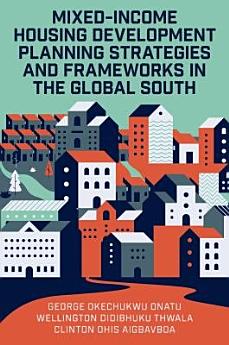Mixed-Income Housing Development Planning Strategies and Frameworks in the Global South
About this ebook
Functioning as a toolkit for inclusive urban planning, Mixed-Income Housing Development Planning Strategies and Frameworks in the Global South evaluates how this framework meets specific socio-economic goals as opposed taking a broad overview of development. Exploring the relevant policies, planning, and legislation that have guided human settlements in South Africa, the authors consider how best to combat residential segregation, informal settlements, and the exclusive allocation of public housing units to the poorest of the poor. Additional case studies from the USA, Australia, Netherlands, Brazil, Nigeria, Botswana, and Ghana compare emerging building strategies and their benefits, including spatial integration, improved access to social services and other infrastructure, and the promotion of local economic development (LED).
Mixed-income housing development has been described as the only way to confront increasing urban poverty and segregation in our built environment. Analysing past projects and focusing on future trends and trajectories, this book acts as both a model for understanding the planning and management of this framework, and a foundation for future research.
About the author
George Okechukwu Onatu is Senior Lecturer in the Department of Urban and Regional Planning, Faculty of Engineering and Built Environment, University of Johannesburg, South Africa.
Wellington Didibhuku Thwala is Distinguished Professor and Executive Dean Faculty of Engineering, Built Environment and Information Technology, Walter Sisulu University, South Africa.
Clinton Ohis Aigbavboa is Full Professor at the Department of Construction Management and Quantity Surveying, Faculty of Engineering and Built Environment, University of Johannesburg, South Africa.





